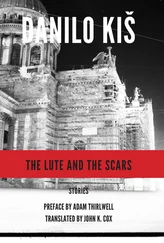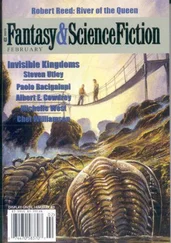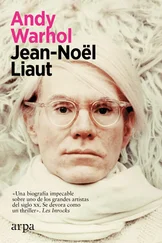A lazy weekend dawned on Base Hatzor. Work was over, the roar of the jets silenced, and everybody scattered every which way to gulp lunch and grab a quick nap. Hush. No cow mooed, no donkey brayed, no bird chirped. The skies emptied, too, and the radar controllers slept before their screens. One Harvard waited silently at Hatzor.
I decided that this was the perfect time to seduce Ali away from the kibbutz to go with me for a trip to the Galilee. An aerial trip, to be sure. After all, this was what I had to offer.
I waited with a pounding heart. School was over. The sun set. Finally she showed up at the base entrance.
Our Harvard mooed like a bull as it grazed the corn and cotton fields in the Izreel Valley, twisting among trees and hopping over power lines. When we arrived at the old Crusader castle Belvoir, the Jordan Valley divided under our nine roaring cylinders, and we pulled up to five thousand feet. The Kinneret, the Sea of Galilee, stretched before us gray-blue, its waters rough and opaque in the strong early evening wind. In the yellow light of the setting sun I lowered the landing gear, and instantly we landed at Mahanaim landing strip, a deserted old British runway made of cracked white asphalt, among gray thorn fields. This was my home, the Upper Galilee.
Down there my family from Hulatta was waiting. Oh, the joy of meeting my foster mother, Dvorah, my Uncle Aronchik. They already had two children.
Dvorah asked with a cunning smile, “Hey, you, so—are you two going to get married?”
Ali and I looked sideways at each other and blushed. I kept quiet—why say that she hadn’t said yes yet?
Ali stammered, “What an idea, of course not! I’m still in tenth grade; I have to finish school first, then two years in the army, and besides, who talks about stuff like this?” Her cheeks flamed.
A big laugh.
I took Dvorah for a spin in the Harvard to show her the kibbutz from the air. We toured the whole Hula Valley. The Harvard came close to the dark mountains of Syria. They held their fire.
When we finally landed, the family invited us for a late lunch at Gitt’l’s Restaurant in the nearby town of Rosh Pinna. But I had a problem: I couldn’t shut off the aircraft engine, since if I did, there would be no way to start it again. I had forgotten to bring the manual crank starter with me. But it was difficult to say no, and in the end we went to town and left the Harvard with the engine running and stones wedged under the wheels, sitting on the tarmac rattling, waiting for us to finish our business and return.
At night we returned, stuffed, and found our loyal Harvard waiting in total darkness, milling the air with its propeller. With faltering feet we climbed the slippery wing in the back draft of the propeller, stumbling and slipping, and finally got in the cockpit. I lit up the cockpit instrumentation and in the faint red light put the parachute on Ali’s shoulders and fastened the belts around her waist. Then I entered the front cockpit, and with a wave good-bye, pushed the throttle forward. We took off, swaying through occasional pools of light thrown by the car headlights on the darkened strip, and finally were airborne among the stars.
I thought, “Ali, you are going to be mine.”
THAT AFFECTIONATE NICKNAME, Ali, was my own invention.
Everybody else called her Aliza or “Lizchen.” Adella—her foster mother—called her lovingly “Lisyen.”
She was one of a multitude of small, almost invisible girls we bigger boys never paid attention to, but one day Miriam told me, “You don’t look where you should. Look down a little, look at the smaller girls.” Miriam and I, before we went into the military, used to talk about things while sitting on the stone fence of the dining room, after the evening activities of the Labor youth movement were over. We both were scoutmasters there.
I said to Miriam, “Those little ones? What, they don’t have any… ”
“They’ll grow,” she said with a laugh. “You should evaluate the potential.”
Miriam was a clever girl. She had a good head for math and used to listen to serious music, Bach and such. I took her seriously and began to look where she had suggested. Among them I found one with a gentle face and a light step. She was silent and introverted. Though an athlete and a fast runner, she moved silently, as if keeping a secret.
AT THE END OF 1958, all my classmates were drafted. First, the girls were scattered to IDF bases all over the country. Then Moishele and Zikky went to the paratroopers, Gabi to tanks; Daniel Vardon became the hero of the Golani infantry brigade. We missed each other and kept exchanging letters, which passed from hand to hand. Eventually we decided to distribute our letters among ourselves in the form of a monthly newsletter. So it turned out that in the rare weekend leaves from Tel Nof, I was collecting letters and editing them for publishing.
Then the newsletter had to be typed. This indeed was a chore. Somebody said there was a girl from the ninth grade, Lisyen, who knew how to type. So we sat together monthly on a Saturday night, in the deserted office center of the kibbutz, I reading the letters aloud to her and she typing them.
She was fifteen, a nice girl, and I was a soldier. We were very shy and cautious with each other. We didn’t speak much, and our eyes avoided contact. When she was done, late at night, she collected her things and vanished, and her scent went with her, and I was left alone to illustrate and decorate the folios smelling of stencil wax, and to smear the black, creamy ink and turn the handle of the mimeograph machine.
We really talked only once. I told her of the long hours on guard at the base’s fences. She offered me an unknown magic: a transistor radio—a plastic box she had gotten from her South African uncles. It was a working radio with a large, transparent broken dial. All the air cadets used her present in turn, until one of us was caught and the thing was confiscated. Listening to the radio was not allowed on guard duty.
SHE WAS NOT ONE of my own kind.
In the evening she went to Shlomo and Adella Dgani’s room. They were Yekes—immigrants from Germany. At first I thought Shlomo and Adella were her parents. Then I learned that they had taken her into their home when she was four, after Otto Samuel, her father, was killed in 1948, and her mother, Jenny, fell seriously ill.
Shlomo and Adella Dgani (Feldblum) were different from us and even from how their own children turned out. In the Middle East, the Yekes were a strange community with different habits and a different language. They had high cultural aspirations and a deep longing to be somewhere else, in another climate, under a different sun. Most German Jews didn’t leave their lethal fatherland. They stayed and died. Those who came to Palestine remained chained to the culture and the language of their murderers. Most of them never could adapt to the melting pot that was Palestine, soon to be Israel.
Being aware of this conflict, I took measures. When finally the delicate adoptee of Shlomo and Adella invited me to their place, I was on my best behavior. I even washed my feet before putting my sandals on.
And there, surrounded by Yekes, I first came to know that miraculous powder, instant coffee. With the sure smile of a man of the world, I loaded a full spoon of the powder into the boiling water in my china cup. The powder shrank immediately and consolidated into a black, sticky ball that floated on the surface. I redoubled my stirring, but the damn ball refused to melt. Puzzled, I tried once or twice to push it down to the bottom and crush it with the spoon, but it was agile and evasive and resurfaced. Suddenly I realized that everyone was watching me with raised eyebrows, sipping their coffee seriously. I had to do something, and soon.
Читать дальше












